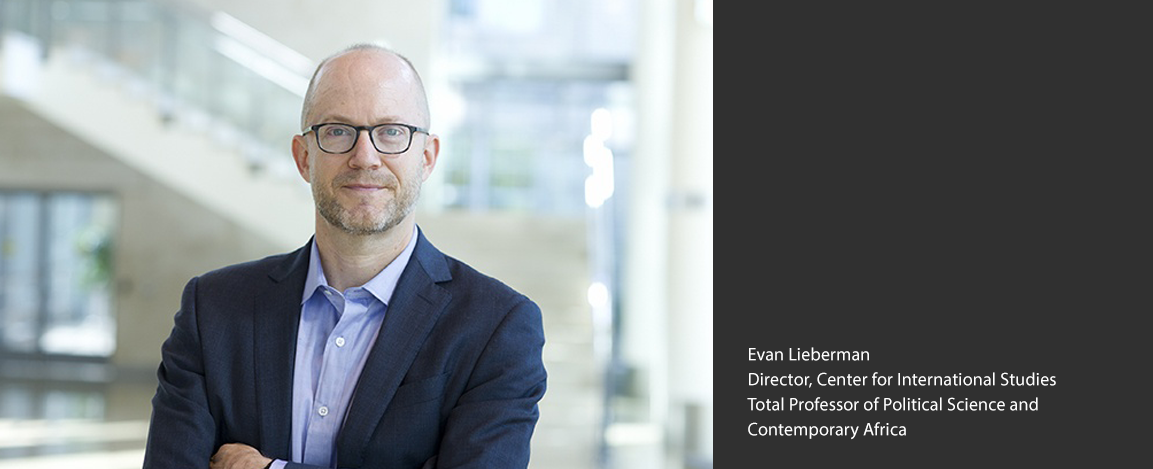Evan Lieberman reflects on the last few months at the Center for International Studies after his appointment as its new director.
As the new director of the Center for International Studies, I began my term with a humble look back to the Center’s origins, born of the politics of the Cold War. In 1950, President Truman called for a “great campaign of truth” in response to concerns about Soviet influence and the proliferation of misinformation. At the time, MIT was already playing a huge role in national security with the development of its Radiation Lab (“Rad Lab”). Nonetheless, campus leaders recognized the value of problem-driven social science to help address the social, political, and economic quagmires of the day, and urgently created our Center.
More than seven decades later, this past continues to echo loudly as we confront a new, arguably much more complex set of realities. We face the existential threat of climate change, the ravages of which have been all-too-abundant during the past year. We have good reason to be anxious about the many ways in which artificial intelligence is changing our lives in very short order. The COVID pandemic still reverberates and other global pandemics are surely on the horizon. The Russian invasion of Ukraine and tensions with China remain as sources of critical concern. We now face a violent Middle East conflict that has only accelerated over the past several months. Moreover, various threats to democracy proliferate at home and around the world.
At CIS, we strive to intentionally and effectively support research, foster network-building, and educate our audiences. This work is reflected in the Center’s programs, projects, and individual output of our scholars. In an effort to help further amplify our work, we recently launched a new initiative that organizes communications across regional (Africa, Asia, Europe, Americas, MENA) and thematic (initially including climate, security, computing, democracy, migration) focus areas.
While this effort is still new, some of these communities at CIS have already begun to take root. For example, the recently formed MENA/MIT created educational programming to help provide context to the crisis in the Middle East. The courses were attended by hundreds of MIT community members—a fitting response to President Kornbluth’s calls for dialogue and collaboration during times of uncertainty and unrest.
I invite you to learn more about the work at CIS in this issue of précis, including our new regional and thematic initiative and how you can be involved.




